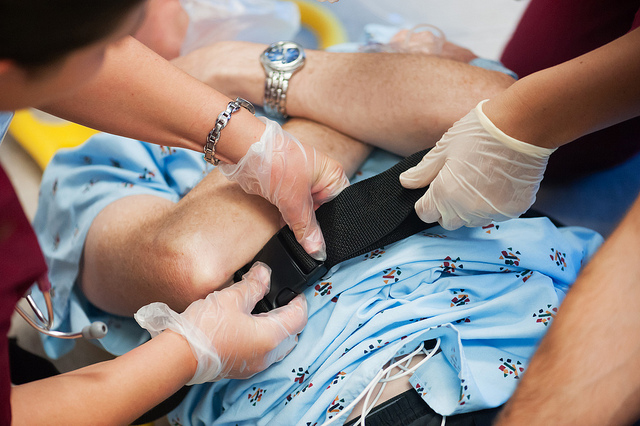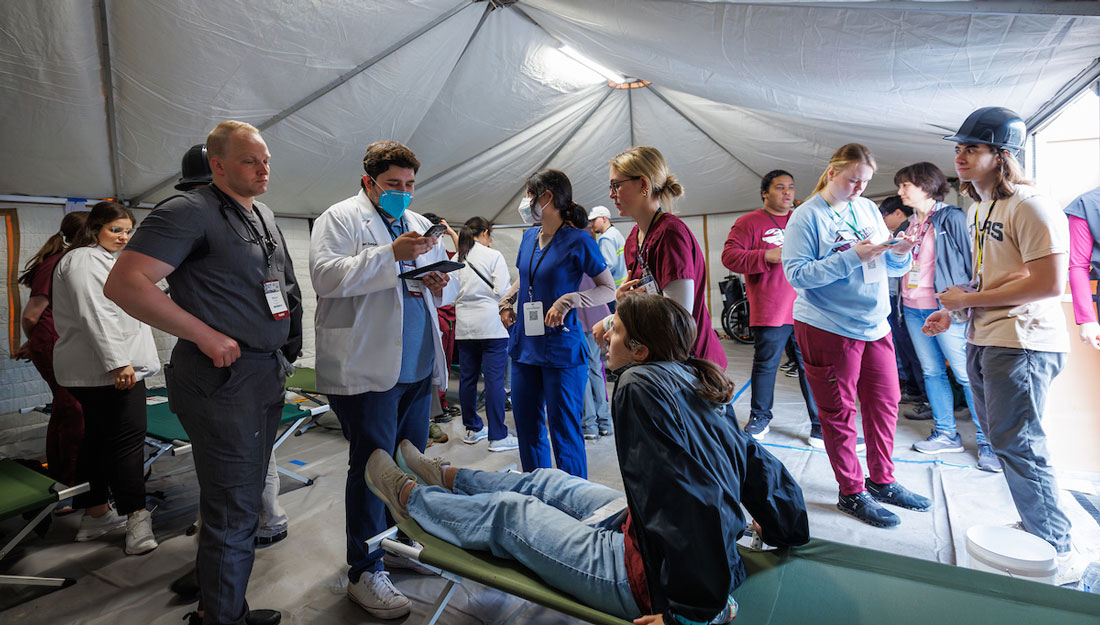Q&A: What is Forensic Nursing?
Last year, Texans experienced one violent crime every five minutes. Due to the growing incidence of abuse and violence, the war on crime has expanded to encompass much more than just law enforcement.

In Texas, the bridge between health care and the criminal justice system is being built by nurses. Optimizing on the caregiving role of the nursing profession, forensic nurses are uniquely qualified to observe, recognize, collect and preserve evidence from perpetrators and survivors of violent crime. We sat down with Trisha Sheridan M.S.N., RN, WHNP-BC, SANE-A, CFN assistant professor at the Texas A&M Health Science Center College of Nursing, forensic nurse program coordinator at Baylor Scott & White Hospital in College Station and the only practicing certified forensic nurse in the Brazos Valley, to find out more on how forensic nurses are helping victims recover from their injuries and seek justice.
Q: What is a forensic nurse?
A: Forensic nurses provide specialized health care and consultation for victims of violence and abuse. We are nurses trained to meet the patient’s medical needs while providing the specialized skills of injury identification, evaluation and documentation. We collect evidence, consult with legal authorities and give testimony in court. All interpersonal violence is aided by forensic nursing, including sexual assault, domestic violence, child abuse and elder abuse.
Q: Where do forensic nurses practice?
A: Forensic nurses are frequently found in hospitals and child advocacy centers, but can also be found in community anti-violence programs, coroner’s and medical examiners offices, correctional facilities and psychiatric hospitals. Forensic nurses may also be called on in mass disasters or community crisis situations. Currently, there simply are not enough forensic nurses in this state, and we want to change that.
Q: What does a typical ‘day in the life’ of a forensic nurse look like?
A: There really is not a “typical day” for a forensic nurse. Every day varies, every patient is different and in this community a great amount of time is spent on education and training future certified forensic nurses.
Q:Are there enough practicing forensic nurses?
A:It’s a small, specialized field, and there are not many in Texas – and that’s something we hope to change in the future. There is a great need for nurses with these skills. Until this year, I was the only certified forensic nurse in our area and now we have a team of five nurses who are all working toward their national certification in forensics.
Q: What are the steps to becoming a forensic nurse?
A: Forensic nurses are nurses first; we are registered nurses with specialized training, education and certification. So, if someone wanted to become a forensic nurse, they’d have to become a registered nurse first, and then become certified in forensics.
Q: How do forensic nurses help victims of violent crime and abuse?
A: By thinking ‘forensically’ and clinically, forensic nurses are holistically prepared to identify criminalized acts resulting in harm and help the legal system conduct investigations. We are uniquely suited to care for the survivor throughout the entire process; it takes forensics far beyond data collection and preservation.
Q: How do forensic nurses impact the war on violence?
A: We provide patient-centered, evidence-based care to victims of violence. By setting a precedence of excellent care and evidence collection, we begin the process for a successful health outcome and effective investigation. We are trained to go to court to educate juries and judges on the evidence we find, and what that evidence means. We’re at the crossroads of health and justice; it’s a place where forensic nurses can make an enormous difference. We want to equip Texas with advocates against violence and agents of care – that’s a pretty exciting place to be.
Media contact: media@tamu.edu


